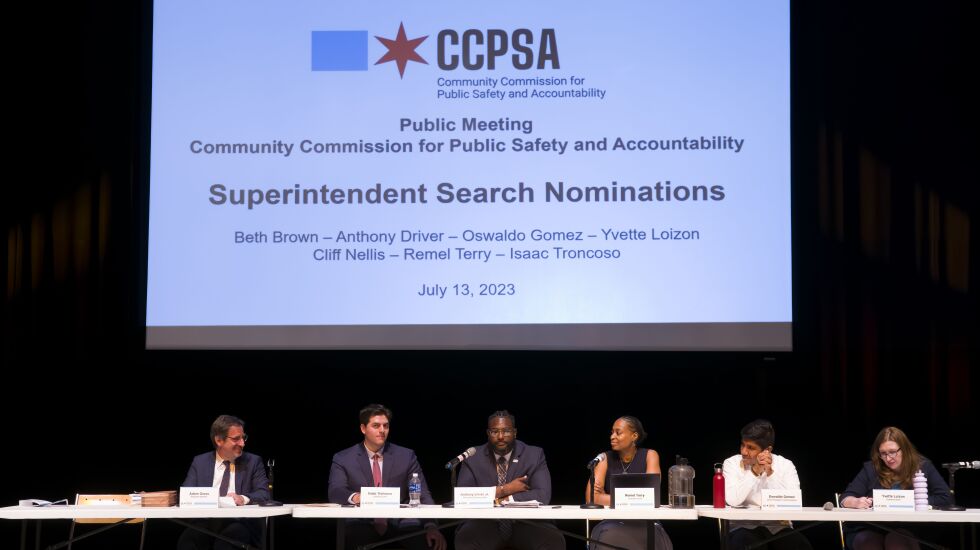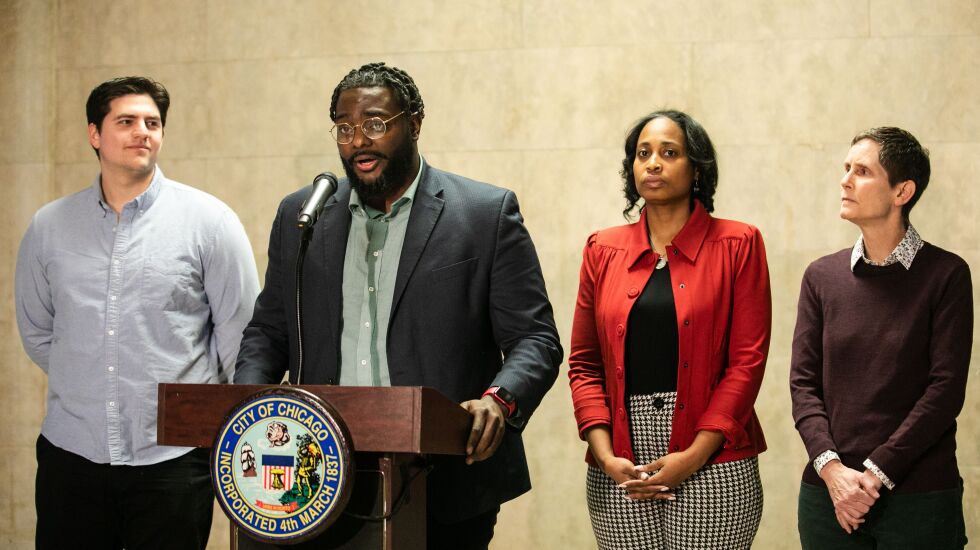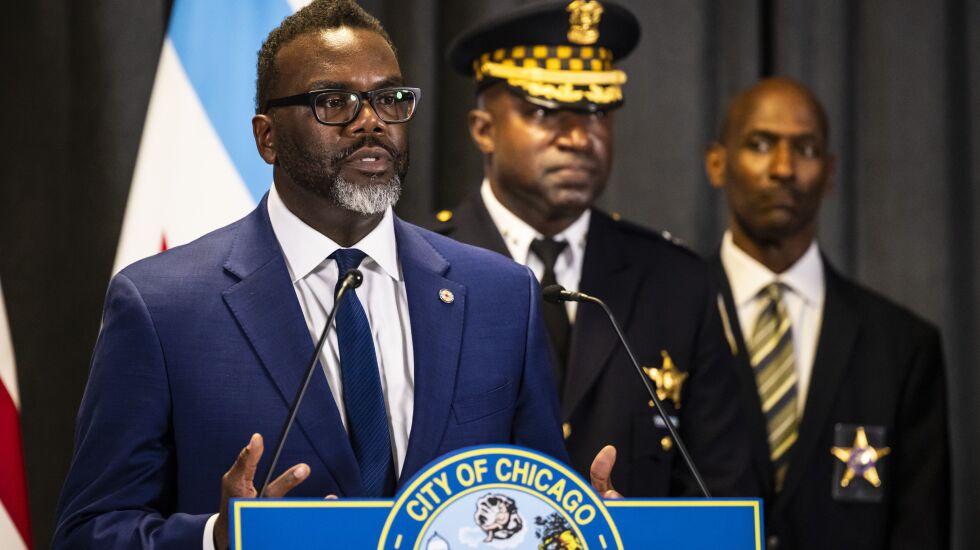
Chicagoans interested in serving on the permanent, seven-member commission responsible for civilian oversight of the Chicago Police Department have 30 days to apply.
The window for applications opened Monday and closes at noon on Feb. 7.
One month later, a 22-member commission — one from each of the 22 district councils — will choose 14 nominees. Mayor Brandon Johnson will either select seven from that list, or explain in writing why the commission’s choices are insufficient.
If Johnson requests more names, the nominating commission will have until May 7 to provide them.
Four of the seven commission members will serve for four years. The other three will serve two-year terms. The length will be decided by a random drawing conducted by Adam Gross, executive director of the Community Commission for Public Safety and Accountability.
All commission members will receive a $12,000 annual stipend. The commission president — chosen by fellow members — will be paid $15,000 a year.
Not just anybody can apply for a seat on the commission.
Applicants must have been Chicago residents for the last five years. They also cannot have worked for the Chicago Police Department, the Civilian Office of Police Accountability or the Chicago Police Board during that period.
Applicants also must have “at least five years combined experience in one or more of the following fields: law, public policy, social work, psychology, mental health, public safety, community organizing, civil rights or advocacy on behalf of marginalized communities,” according to the city’s website.
A current resume and three letters of support are required from each applicant, who have the option of submitting a written statement detailing their “experience with policing and the criminal legal system.”
Of the seven members, six must meet geographic distribution requirements — two from the North Side, two from the South Side, two from the West Side — and must have lived in that area for at least one year before being appointed.
At least one must have at least 10 years’ experience as a practicing attorney “with significant experience in civil rights, civil liberties or criminal defense or prosecution.” At least one must have, at minimum, a decade of experience in “community organizing that involves a formal affiliation with one or more community-based organizations.”
Two members will be exempt from those requirements and “shall be between the ages of 18 and 24.”
The rigid requirements stem, in part, from the sweeping powers and the responsibility to deliver civilian oversight of the police department seen as pivotal to restoring shattered trust between citizens and police.
The landmark ordinance approved by the City Council in July 2021 also empowers the commission to conduct a nationwide search for Chicago’s next police superintendent whenever a vacancy occurs, as well as vacancies on the Police Board.
The commission must also establish annual goals for the police department and COPA, which investigates allegations of misconduct by police officers. It also will set police policy not covered by the consent decree and measure progress toward fulfilling those goals.
The commission is authorized to take a vote of no-confidence in the superintendent and Police Board members that would trigger a similar vote by the City Council after public hearings. Although the ultimate decision on the superintendent’s fate would still rest with the mayor, back-to-back no-confidence votes in the superintendent would create enormous political pressure that would be difficult for the mayor to ignore.
If the mayor ignores the recommendation, he or she would need to publicly explain why.
“People should apply because ... there’s a big opportunity to have a big role in what policing and public safety look like,” said Sam Schoenburg, a member of the 19th District Council.
“We’ve already seen that over the course of the last year and a half when the interim commission has been in place. They’ve already had a huge impact on the direction of policing and public safety by nominating qualified potential leaders of CPD, like Supt. Snelling, by establishing department policy around the gang database and officer involvement in hate groups and by establishing goals for the leaders of CPD and accountability agencies,” he said.

Anthony Driver Jr., president of the interim commission, said he intends to apply for a seat on the permanent panel.
“I love working on behalf of the city that I grew up in,” Driver said. “I’m really excited at the fact that there are elected officials in charge of this process now. People who were elected on a district-by-district basis who know their communities the best.”
Driver said he has no doubt there will be enough applicants to choose from.
“I’ve had 10 people reach out to me in the last two days ... about applying. And I’m just one person,” Driver told the Sun-Times. “They said there wouldn’t be enough people running for district council members. And then, double the amount applied to run. I think that trend will continue now that those folks are in office.”








